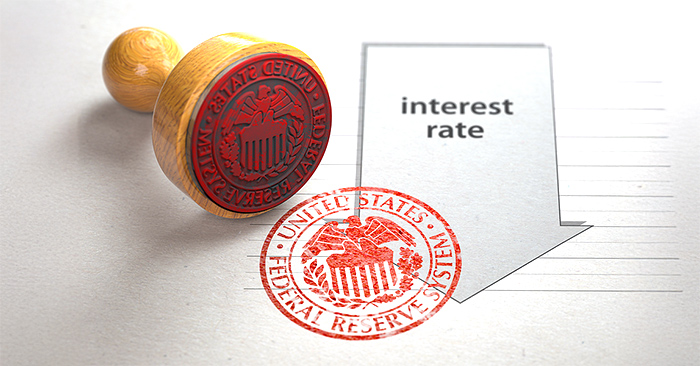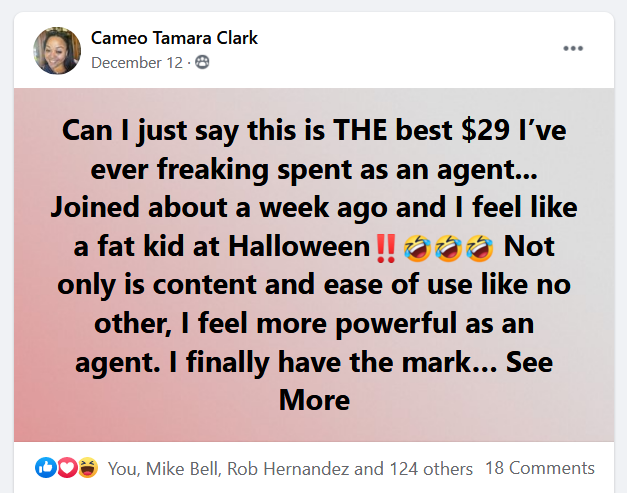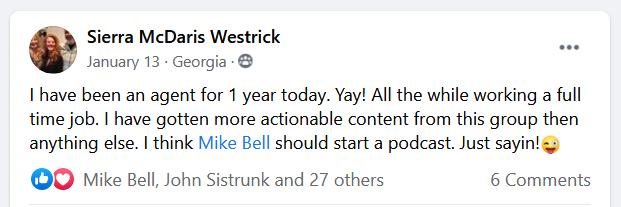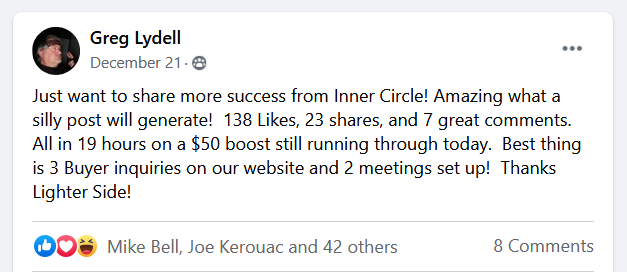
7 Clever Postcard Ideas For Halloween
Question: Have you seen the postcards most agents send out? BOOOR-ING! I’m pretty sure they make the prospects sleep-walk on their way back inside the



If you’re like many home buyers, sellers, or even real estate agents, you might have gotten excited when you heard that the Federal Reserve recently cut its benchmark interest rate.
After watching them hike the rate 11 times since 2022 and reaching its 23-year high, it sounds like great news, right? After all, shouldn’t lower rates from the Fed mean cheaper mortgages, more buying power, and a potential boost in home sales? Whether you’re a buyer hoping to secure a lower monthly payment or a seller eager for more buyer activity, it seems logical to expect that the Fed’s decision will immediately affect the mortgage market.
However, while it’s understandable why so many people believe that a Fed rate cut leads directly to lower mortgage rates, this is a common misconception.
You’re not wrong to think that the two might be related. After all, the Federal Reserve is the central bank of the United States, and its policies influence many aspects of the financial system. When you hear the news about a rate cut, it’s easy to assume that this would directly impact mortgage rates since they both involve lending and borrowing. In fact, many real estate professionals and media outlets fuel this assumption, highlighting potential benefits to home buyers and sellers when the Fed announces a change.
And to some extent, there is a ripple effect that can occur over time. However, it’s crucial to understand that the Fed doesn’t directly set mortgage rates. Mortgage rates are influenced by a different set of factors altogether.
While the Fed’s rate cuts don’t set mortgage rates, the economic conditions they influence — like inflation, consumer confidence, and lending activity — can have an indirect effect over time.
The Federal Reserve controls short-term interest rates through its decisions about the federal funds rate. But the 30-year fixed mortgage rate, for example, follows longer-term rates, and are primarily influenced by the bond market — specifically the yield on the 10-year U.S. Treasury bond.
When the Fed cuts rates, they’re typically trying to spur the economy by making borrowing cheaper in the short term. However, mortgage rates, which are based on longer-term economic outlooks, don’t always move in lockstep. In fact, mortgage rates could potentially increase after a Fed rate cut, if the bond market senses inflation or economic instability on the horizon. (Although, according to Yahoo Finance, the average rate did happen to dip 0.11 percentage point after the Fed announcement, bringing it to the lowest level since early February 2023.)
When investors buy Treasury bonds, they typically seek safety — meaning they might flock to these bonds during times of economic uncertainty. As demand for bonds increases, yields (or interest rates) decrease.
Since mortgage lenders tend to set their rates based on what’s happening with these longer-term bond yields, this is the key area to watch when trying to predict mortgage rate movements.
But honestly, even knowing that it’s the 10-year U.S. Treasury bond you should be watching doesn’t really do you any good. There are so many factors involved when it comes to the current average mortgage rates, and it would be nearly impossible for even a mortgage expert or economist to base their real estate sale or purchase on what and when they predict the market will do in the future.
Of course interest rates matter to some degree when you’re deciding to buy or sell a house. They will impact how much you pay per month, which can dictate what you can and can’t afford, and whether it’s a viable decision for you to move.
But if you can afford the monthly payments, you should buy or sell a house when it makes sense for you personally, not based upon the current mortgage rates.
For example, if you need to buy or sell a house because you’re bursting at the seams and need a bigger place, or because you’re relocating to a different area, or getting married or divorced, waiting for rates to possibly come down a smidge like they did last week probably isn’t going to be worth the wait.
Many buyers, sellers, and even agents get overly optimistic when they hear about a rate cut, assuming that mortgage rates will automatically follow. Unfortunately, this can lead to disappointment, and end up impacting their decision-making process.
Imagine delaying a home purchase in anticipation of lower rates, only to watch mortgage rates inch even higher due to factors unrelated to the Fed’s actions. Or waiting to sell your house until rates are lower because you think it will mean more buyers will be in the market, only to find that when rates finally do come down, it’s switched to a buyers’ market in your area because of bigger issues in the economy.
So, what does all of this mean for you as a home buyer or seller? It’s essential to understand that mortgage rates are influenced by a complex web of factors, not just the Federal Reserve. While the Fed’s actions can have an indirect impact on mortgage rates over time, basing your decisions solely on Fed announcements is risky.
As a buyer, your best move is to stay informed about broader economic conditions and keep an eye on Treasury yields. Remember, mortgage rates tend to follow the bond market, so when yields drop, mortgage rates likely will too. Don’t wait around for a Fed decision to dictate your next steps—talk to your lender, lock in a rate when it’s favorable, and focus on your long-term financial picture.
As a seller, it’s easy to get caught up in the excitement of potential rate cuts and assume that they’ll drive a flood of buyers to your home. While lower mortgage rates can certainly increase buyer activity, remember that real estate is hyper-local, and the broader market sentiment (like economic confidence) plays a larger role. Instead of waiting for an uncertain rate change, focus on pricing your home competitively, staging it well, and working with your agent to market it effectively.
The Takeaway:
While news about the Federal Reserve cutting rates is certainly welcome news for most people in many ways, it doesn’t guarantee an immediate drop in mortgage rates.
The Federal Reserve controls short-term interest rates through its decisions about the federal funds rate. But the 30-year fixed mortgage rate, for example, follows longer-term rates, and are primarily influenced by the bond market — specifically the yield on the 10-year U.S. Treasury bond.By understanding these dynamics, you can make smarter decisions as a buyer or seller, and decide when to buy or sell because it makes sense for you personally, rather than basing it upon hope that rates may come down in the future.

(Shh, our secret)
Show your sphere your an expert. We have over 2100 articles covering every real estate topic your audience will love.
Position yourself as a real estate authority!
Real estate + topical events — the perfect match!
Become the bearer of good vibes!
Because hey, everyone loves to laugh!



Get our weekly email that makes communicating with your sphere on social actually enjoyable. Stay informed and entertained, for free.

Question: Have you seen the postcards most agents send out? BOOOR-ING! I’m pretty sure they make the prospects sleep-walk on their way back inside the

1. Spamming your listings with no commentary Posting a link or sharing something on Facebook without your opinion is boring. Your friends want to know

At some point in their career, almost every agent either considers joining a team, or is asked to join one. It’s not the right move

The other day, I stumbled across a video being hyped as the sickest snowboard clip ever captured. I have zero interest in snowboarding, but the

Via Big Stock Photo “Home is a shelter from storms—all sorts of storms.” — Political pundit William J. Bennett As I stand at what is probably
Depending on your situation, it may not take the full 30 minutes.

This reset password link has expired. Check the latest email sent to you.















